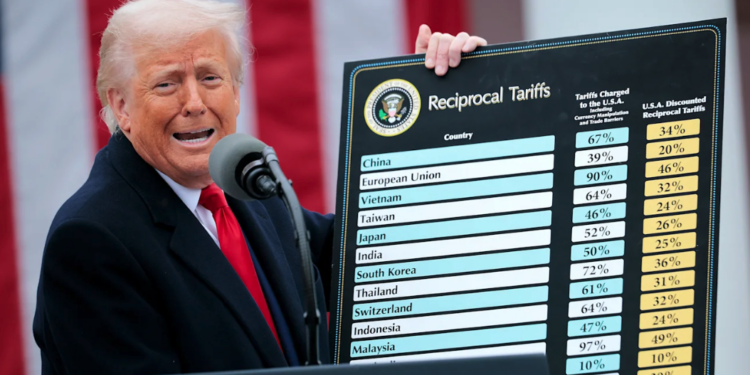Nigeria’s exports to the U.S. will now attract a 14% tariff under Trump’s reciprocal trade policy, responding to Abuja’s 27% duty on American goods.
ABUJA/LAGOS — The United States will impose a 14% tariff on Nigerian exports under President Donald Trump’s newly announced reciprocal trade policy, a direct response to Nigeria’s 27% duty on American goods.
The measure, part of a broader U.S. effort to rebalance global trade, places Nigeria among African nations like Ghana (10%) and Mauritius (40%) facing adjusted tariffs. Data from Nigeria’s National Bureau of Statistics (NBS) reveals bilateral trade between both countries totaled N31.1 trillion from 2015 to 2024, with Nigerian imports from the U.S. accounting for N16.4 trillion, or 8.7% of Nigeria’s global exports.
While Nigeria avoids the steepest tariffs targeting nations like Mauritius (80% local duty), the 14% levy marks a significant shift from previous preferential terms. Analysts warn the policy could strain key export sectors, including agriculture and manufacturing, which contributed to Nigeria’s $6.29 billion in exports to the U.S. in 2023.
The White House defended the move as “fair reciprocity,” but Nigerian trade experts caution it may disrupt a decade-long economic relationship. “This recalibration forces Nigeria to reassess its trade strategy with the U.S.,” said Lagos-based economist Adeola Adeniran. “The focus must now be on competitiveness.”
